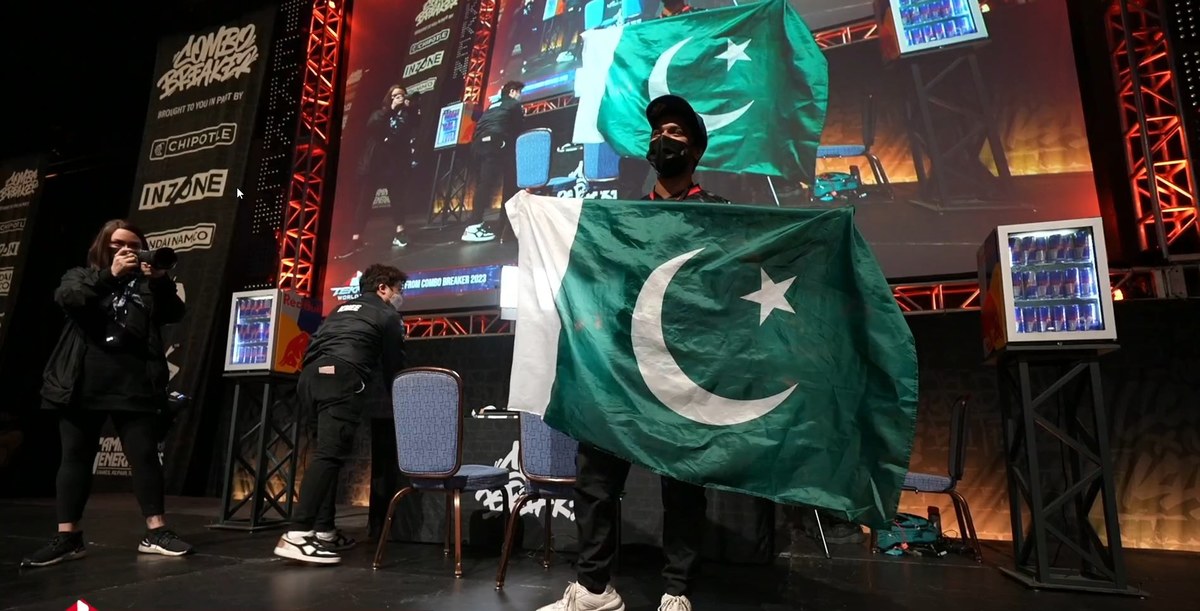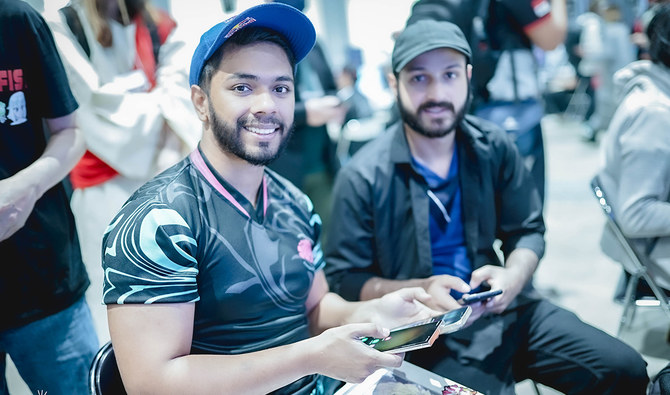LAHORE: Pakistani esports teams have been struggling to compete globally, particularly in most popular games PUBG and Free Fire, as the South Asian country has so far failed to make a mark in the larger Asian region, despite Pakistan’s global success in Tekken.
In May, the Expo Center in Lahore hosted an event called ‘Takedown,’ featuring top Tekken players and game casters from around the world. The event was broadcast worldwide and a huge success, with thousands in attendance.
But the Free Fire and PUBG scene in the country remains dull, despite several tech giants across Asia getting together in 2019 to bring the games to Pakistan. The gaming firms have since poured immense resources in promotions, regularly featured guest appearances by sports stars, celebrities and influencers, which has resulted in millions of subscribers to their YouTube and TikTok channels.
This has led to an exponential increase in the number of casual Free Fire and PUBG gamers in Pakistan, but the professional esports teams have not reached the bar Tekken has set. Experts attribute this to a lack of professional approach toward esports in general and fewer professional sponsors for games other than Tekken.
“Pakistani esports is really behind in the region when compared to Nepal, Indonesia and Thailand, and the reason is that it’s not taken professionally,” Muhammad Ali ‘Dowdy’, the face of Free Fire in Pakistan and the game’s premier caster and commentator, told Arab News.

The photo posted on May 29, 2023, shows Pakistan's top esports player Arsalan Ash posing with his country's flag after winning a tournament. (Photo courtesy: @ArslanAsh95/Twitter)
Ali thinks that the community needs more professional sponsors to grow.
“Look at the numbers of sponsors [Tekken players] have, from Red Bull to teams like FATE Esports [Jordan] and vSlash Esports [UAE],” he said. “Shooting games like Free Fire, PUBG and Valorant don’t have that.”
However, when companies do try, and Mountain Dew has held a number of tournaments featuring PUBG and Valorant, they eventually fail to get desired results because they cast their nets too wide.
A Dew Gamers Galaxy event was canceled this year, with the organizers citing “budgetary concerns.”
The Free Fire and PUBG developers, which include Garena (Singapore), KRAFTON (South Korea) and Tencent Games (China), sponsor most teams and all of the tournaments in Pakistan. Garena particularly has not left any stone unturned in its promotions of Free Fire.

The undated photo shows popular video game PUBG's poster. (Photo courtesy: pubg/website)
“Last year we had an advertisement for the game featuring [Pakistan cricket captain] Babar Azam and [spinner] Shadab Khan,” the Free Fire caster explained.
KRAFTON, the primary developer at PUBG, has added several local language packs such as Pashto, Sindhi and Balochi.
But despite all these promotions, Ali feels the surge in the number of casual gamers, digital content creators and live-streamers has not translated well into professional gaming in Pakistan.
Some players, he believes, are more interested in growing their social media platforms as live streaming, if one gets 500,000 subscribers, starts paying more than competitive gaming.
“We lose a lot of players to that too,” he said.
Ali, however, says while Pakistan’s youth are crazy about gaming, most of the players are around the age of 20.
“It’s a challenge convincing parents that esports is the future, that it is lucrative,” he said. “Parents still only want their children to be a doctor or engineer.”
He thinks the government has a role to play in promoting esports as a viable career option and to facilitate travel for tournaments in other countries, proven by the fact that the Free Fire team that won the 2022 national championship in Pakistan was denied visas to participate in the Thailand regional finals as they had to apply privately and COVID-19 measures were still in place.
In 2021, the then Pakistani information minister, Chaudhry Fawad Hussain, announced the country would set up an esports and the video games would be recognized as a regular sport by Pakistan, complete with state backing for visas and tournaments.
While there have been plans to do so since, the Sports Federation of Pakistan says it has still not gone through those ideas, leaving professional gamers in limbo.
Baaz, a Pakistani startup that has been putting money into gaming and helping players procure visas, organized the globally broadcast Takedown event this May, though that success was again entirely Tekken-based.
“There is a massive young market of digital media consumers in Pakistan,” Danyal Chishty, the Baaz CEO, told Arab News.
“But my aim is not to be yet another organizer, another sponsor [or have ambitions beyond his means, and meet the same fate as Dew Gamers Galaxy]. My aim is to tell a story, build a brand, enter the mainstream.”
Takedown featured 512 players, including a dozen from South Korea, the Philippines, the UK and Germany. The winner was awarded a competitive Rs2 million.
Chishty, who is also shooting a documentary about professional fighting game players in Pakistan, says consistent money in esports can’t come from anywhere else, but only by building up players as recognizable, sellable brands.
“I used to manage esports tournaments when I was studying in the States,” he said. “Arslan Ash was [a big deal] in 2019 [winning Tekken championships in Tokyo and Las Vegas]. That told me gaming can be huge back home.”
Arslan ‘Ash’ Siddique ignited the Tekken fever claiming the first ever major fighting game trophy representing the country. While he won in Japan again in 2023, he did not win at Takedown. His protégé, Atif Butt, did. Butt also won the Tekken World Tour of 2022 in The Netherlands.
Gaming in Pakistan has come a long way since the coin arcades that the country’s Tekken champions grew up practicing on. It has gone fully digital.
Mobile technology has grown in access to over 80 percent of the population, with the median age of the country being under-20. This makes settings ripe for a competitive PUBG explosion, but Pakistan has never gone beyond Bangladesh and Nepal.
Tanveer Hanif, one of the many PUBG managers floating around the circuit, says the trick isn’t getting young players into competitive esports, it’s keeping them there.
Hanif manages AGONix8, the top ranked PUBG team in Pakistan, which is sponsored by one of PUBG’s lead game developers, Tencent Games.
“After winning the PUBG spring league this year, we lost three players [from a roster of six]. Keeping these young players together is the challenge,” Hanif told Arab News.
“The money is there, dozens of tournaments, qualification to South Asia majors and then onto the Middle East.”
The PUBG Mobile Championship in Pakistan has awarded winners with a prize money of Rs2.8 million in each of the last two seasons, runners-up half of that.
“But the drive isn’t, it’s difficult to keep pace with the rota of professional PUBG teams, every month there is another person in and two people out,” Hanif added.
The Free Fire and PUBG national championships in Pakistan had a collective prize pool of roughly Rs10 million in the winter of 2022. It sounds impressive, but unlike Tekken, this money is distributed among 16 teams with 5-7 players each, in addition to the managers who coordinate the entire squad.
“You can see that Tekken players often have multiple international sponsors, and they are individuals. Our team of six just has one,” Hanif said.
“More sponsors, more reliable income, will make it easier to convince these talented individuals to stay in professional gaming.”












